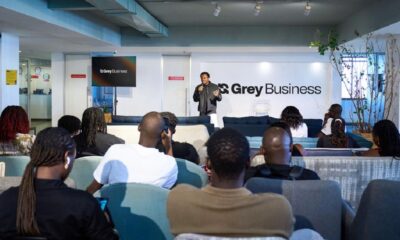Projected 10.5% rise in global spend this year represents a 2.3 percentage point (pp) upgrade to WARC forecast, reflecting the uptake of AI-enabled media tools
North America to grow 8.6% this year to $348bn, APAC market worth $272bn but growth cools to just 2.0%, Europe forecast to rise 5.0% to $165bn, Latin America +6.2% to $32.1bn, Middle East largely unaffected by looming threat of regional conflict +4.2% to $12.6bn
US political spend set to reach $15.8bn this year; $3.6bn spent across social platforms with growth rapidly increasing since change of Democratic candidate
WARC Global Ad Spend Outlook 2024/25 – A Decade of Consolidation
22 August 2024 – A new study from WARC, the experts in marketing effectiveness, has found that global advertising spend is on course to grow 10.5% this year to a total of $1.07trn – the best performance in six years if the post-Covid recovery of 2021 (+27.9% year-on-year) is disregarded.
Ad spend growth is also anticipated next year (+7.2%) and in 2026 (+7.0%), culminating in a global ad market worth $1.23trn. Global ad investment has more than doubled over the last decade, and has grown 2.8x faster than global economic output since 2014. Just three companies – Meta, Amazon and Alphabet – account for more than 70% of this incremental spend. This trifecta is expected to attract 43.6% of all advertising spend this year, rising to a share over 46% by 2026.
WARC’s latest global projections are based on data aggregated from 100 markets. New for this edition, WARC is now leveraging an advanced neural network machine learning model which projects advertising investment patterns based on over two million data points spanning macroeconomic data, media owner revenue, marketing expenses from the world’s largest advertisers, media consumption trends and media cost inflation. It is believed to be one of the most comprehensive advertising market models available to the industry today.
The new projections show that ‘pureplay’ (i.e. online only) internet companies are set to record a 14.0% rise in advertising revenue this year, reaching a total of $735.7bn. In total, almost nine in every ten (88.5%) incremental dollars spent on advertising this year will go to online-only businesses, with half (52.9%) being paid to Alphabet, Amazon and Meta. Taken together, pureplay platforms are set to account for over 70% of all advertising spend worldwide next year.
Retail media (+21.3%), social media (+14.2%) and search (+12.1%) are set to lead digital growth in 2024, with these three sectors alone accounting for over 85% of online spend and almost three in every five (58.7%) incremental dollars spent on advertising worldwide this year. All are benefiting from the increased adoption of AI-driven ad services and growing appreciation of first party data.
James McDonald, Director of Data, Intelligence and Forecasting, WARC, and author of the research says: “The global ad market has doubled in size over the last decade, with advertising investment growing almost three times faster than economic output since 2014. Three companies – Alphabet, Amazon and Meta – have been the largest beneficiaries from this period of expansion, attracting seven in ten incremental ad dollars over the last ten years.
“With retail media expected to lead ad spend growth over the coming years, and with new, diverse players emerging in ad selling – from Uber to Chase – we are once again seeing the value of first party data in targeting the right person with the right message at the right time. Such data, combined with new AI enhancements, will constitute the fabric of the advertising industry for the next decade and beyond.”
Key findings outlined in WARC’s Global Ad Spend Outlook 2024/25 are:
MEDIA TRENDS: Global ad spend is forecast to rise 10.5% this year to a total of $1.07trn, and then 7.2% in 2025 and 7.0% in 2026; social, retail media and CTV to lead growth
At $241.8bn in 2024, social media is the largest single advertising channel measured in WARC’s study, having overtaken search (excl. retail media) for the first time last year. It accounts for 22.6% of all global ad spend this year and is forecast to rise to a share of 23.6% by the end of 2026.
Within social, Meta is the largest individual player, commanding 62.6% of the market this year. Its share is being eroded however, most notably by Douyin and TikTok owner Bytedance, which now draws a fifth (20.1%) of all social spend, up from a share of just 9.3% five years ago. TikTok is on course to account for over half of its parent-company’s advertising revenue for the first time next year with estimated ad billings over $28bn, though uncertainty remains around the platform’s future in the US – its largest market by far with 170m monthly active users.
The main social platforms have reported a fillip from new, AI-enabled services during the first half of 2024, a trend that is set to underpin the advertising industry at large over the coming years. Over half of all AI-enabled spend – defined as involving some form of recommendation algorithm, natural language processing or search optimisation – today occurs in the social media sector.
Search advertising (excluding retail media) accounts for 21.8% of global advertising spend, at a forecast total of $223.8bn this year. Its share has consistently grown since WARC began monitoring the sector in 2013, though it is set to plateau in 2026 as more purchase journeys begin in retail media environments and social commerce begins to realise its potential outside of Asia. Another potential headwind may be the rise of AI-driven search, and uncertainty around what the ad experience will look like for consumers more familiar with text-based search experiences.
Google accounts for more than four-fifths (84.0%) of the global search market, with its paid search revenue set to top $200bn for the first time next year. Google’s share rises to over 90% if China is excluded, a position of dominance which this month led a US judge to rule the company in breach of antitrust laws.
Retail media is expected to account for 14.3% of global ad spend this year – a total of $152.6bn – which is double the share recorded in 2019 before the pandemic contributed to an exceptional growth spurt. Indeed, retail media is expected to be the fastest-growing channel over at least the next three years.
Amazon is the dominant global player, with anticipated ad revenue (excluding Twitch and Prime Video) of $55.9bn equivalent to more than a third (36.6%) of all retail media spend and over two-thirds excluding China this year. While competition is heating up, such billings eclipse the near $4bn Walmart is due to net in 2024 and the $1bn ad business Uber is building, while Amazon is also due to have surpassed Alibaba by ad revenue for the first time this year.
CTV is on course to be worth $35.3bn to advertisers this year, roughly a quarter of the size of the linear TV market. Growth is rapid; CTV spend is expected to rise 19.6% and is set to account for two-thirds of all growth in the video (linear + CTV) market this year, and all growth in 2025. By 2026, CTV is projected to account for almost a quarter (23.9%) of all video ad spend, at $46.3bn.
Netflix is the largest streaming provider globally, with 277.6m subscribers worldwide in Q2 2024. However, its global advertising business is unlikely to grow too far beyond $1bn this year. YouTube’s ad income – which we do not yet classify as CTV – is expected to rise 14.3% to $36.0bn this year. Further, YouTube’s ad revenue is set to top $45bn globally by 2026, almost as much as the entirety of the global CTV industry at that time.
Legacy media, encompassing print publishing, broadcast radio, linear TV, cinema and out of home (OOH), now collectively account for a quarter (25.3%) of total advertising spend, having recorded a dip in share in each of the last 15 years.
Advertising spend on legacy media is expected to total $270.5bn this year, representing a 1.5% rise from 2023. Much of this growth can be attributed to US political spending; with this removed legacy media are, collectively, set to record a 0.5% decline in advertiser investment in 2024.
Linear TV spend is expected to grow by 1.9% this year, its best performance since 2014 if the post-Covid recovery year of 2021 (+12.7%) were excluded. The market is flat (+0.1%), however, excluding US political spend. Out of home (+7.2%) and cinema (+6.1%) will see some growth this year, though radio (-2.3%) is expected to record its third consecutive year of decline. Newsbrands (-3.3%) and magazine brands (-3.4%) are also due to see losses across print and online editions.
PRODUCT SECTOR TRENDS: Technology & Electronics (+13.2%), Alcoholic Drinks (+12.2%) and Clothing & Accessories (+11.1%) the fastest-growing consumer sectors next year. US political spend is expected to reach $15.8bn this year; over a fifth spent on social.
Advertising spend during the 2024 US presidential election is on course to top $15bn for the first time, with an expected total of $15.8bn up by over 40% on the previous cycle in 2020. Spend had been lagging the 2020 total earlier this year, but the surprise decision to change the Democratic candidate has led to an influx in spending in order to reposition the new ticket of Kamala Harris and Tim Walz. This shift is perhaps most pronounced online: political spending on social media is tracking 27.4% higher in Q3 2024 versus Q2 2024, with social spending by both main parties on course to reach $3.6bn this year.
Retail – the largest of the 19 categories monitored by WARC – is anticipated to record a 2.5% dip in global spend this year. Our definition of this sector is broad however, ranging from quick service retail (QSR) to grocery to department stores to online retailers, such as Temu. The latter is expected to continue investing heavily in advertising, particularly in Europe this year, but it is an exception – the longer tail of retailers are facing business pressures from soft consumer demand.
Technology & Electronics – the third-largest product sector monitored by WARC – is expected to post the fastest growth this year, with incremental spend of $17.0bn worldwide. The sector had recorded declines in advertising spend in both 2022 and 2023, as central banks raised interest rates sharply in an attempt to stymie inflation, exposing over-leveraged tech startups in particular.
Technology & Electronics (+13.2%), Alcoholic Drinks (+12.2%) and Clothing & Accessories (+11.1%) are forecast to lead ad spend growth among consumer-facing products in 2025, though Business & Industrial, the second-largest category, is expected to be the fastest-growing category overall next year (+18.2%), as budgets unlock during a period of comparatively favourable economic and trading conditions.
The Nicotine category is also growing rapidly, albeit from a low base; it is the smallest of the 19 product categories monitored by WARC at $13.0bn in 2024. Spend is set to grow 56% over the three years to 2026 – reaching a total of $17.2bn – driven almost entirely by vape products which skew heavily towards online advertising.
REGIONAL TRENDS: North America to grow 8.6% this year to $348bn, APAC growth cools to just 2.0% owing to stronger dollar, Europe is forecast to rise 5.0% to $164.9bn, while Middle East ad markets are largely unaffected by looming threat of regional conflict
North America is on track to be the fastest-growing region this year – inflated by the US presidential elections – with ad spend rising 8.6% to a total of $347.5bn. US ad spend is expected to grow 8.9% this year (+4.0% excluding political spend, more than double the 1.4% growth rate recorded in 2023) to a total of $330.8bn. A further rise, of 3.6%, is forecast next year, by when the US ad market should be worth over $342bn. The Canadian ad market is due to grow 7.5% to CAD23.3bn ($16.8bn) this year.
Latin America (+6.2% to $32.1bn in 2024) then follows, with its largest market, Brazil, forecast to record local currency growth of 9.6% this year to a total of BRL85.7bn ($14.8bn) – an acceleration from the 7.5% rise recorded last year. Our forecasts suggest that online advertising will account for over half (50.4%) of the Brazilian ad market for the first time this year.
APAC’s (+2.0% to $272.0bn this year) largest market – China – is projected to see ad market growth of 6.4% this year to RMB1.32trn ($181.2bn), an easing from the 9.3% rise recorded in 2023 as consumer demand remains soft and economic expansion lags stubbornly behind the target. Pureplay internet will account for over 86% of the Chinese ad market in 2024, though social media (+10.5%) and retail media (+8.2%) will expand at a slower rate this year than last.
When measured in local currency – so as to exclude the distorting effect of exchange rate fluctuations – we see that India will be the fastest growing key market this year, with advertiser spend rising 11.9% to INR1.08trn ($12.8bn).
Japan – the fourth-largest ad market in the world – is forecast to grow by 5.2% this year to JPY5.83trn ($36.9bn), though this equates to a 6.3% decline when measured in US dollars due to the Yen falling to a decade-long low. Australia’s ad market is expanding by 2.0%, a modest but welcome change of fortunes following flat (+0.3%) growth in 2023, while Indonesia is expected to achieve 7.8% growth this year.
Advertising spend across Europe is forecast to rise 5.0% this year to $164.9bn. The UK, the largest European market by spend, is expected to post an 8.0% rise to £38.5bn ($47.5bn) in 2024 per market data from the AA/WARC Expenditure Report. On the European mainland, France (+8.0%), Italy (+5.4%) and Germany (+4.0%) are all expected to see healthy gains this year, with the former in particular benefiting from increased advertising activity around the Paris Olympics and Paralympics in the third quarter.
Brand spend in the Middle East and Africa is currently on course to rise by 4.2% to $12.6bn this year, though fortunes are mixed. African spend is expected to be flat (+0.2%), following a 15.7% decline in 2023 and 1.4% dip in 2022. South Africa, the region’s largest market, is expected to see its ad market grow 6.0% this year but this translates to a 1.1% increase when measured in dollars owing to a weak Rand by historical measures. Ad spend in the Middle East is set to rise 8.1% this year but that is subject to change should conflict spread beyond Gaza to the wider region.
A complimentary article by WARC’s James McDonald, author of the report, is available to read here. WARC subscribers can read the article and access additional data here.
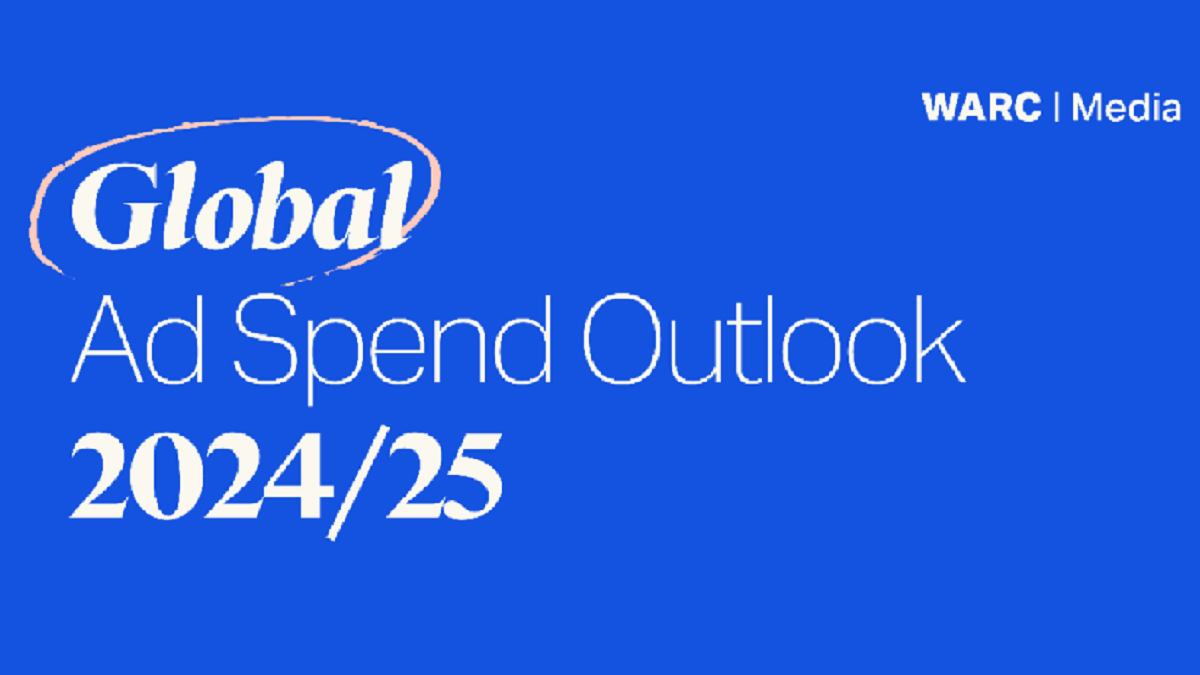

 Business5 days ago
Business5 days ago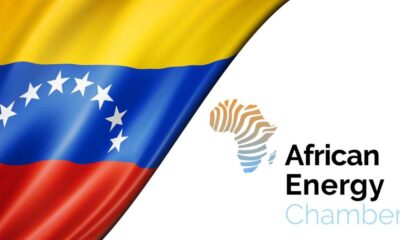
 Energy5 days ago
Energy5 days ago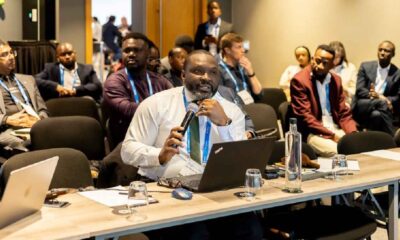
 Events5 days ago
Events5 days ago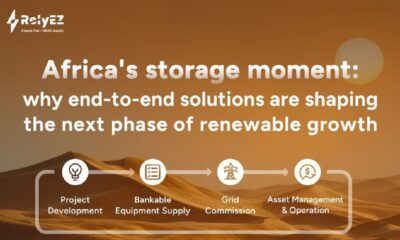
 Energy5 days ago
Energy5 days ago
 Energy5 days ago
Energy5 days ago
 Energy5 days ago
Energy5 days ago
 Business4 days ago
Business4 days ago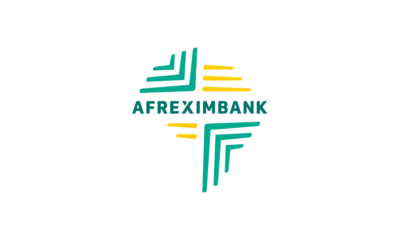
 Business5 days ago
Business5 days ago





